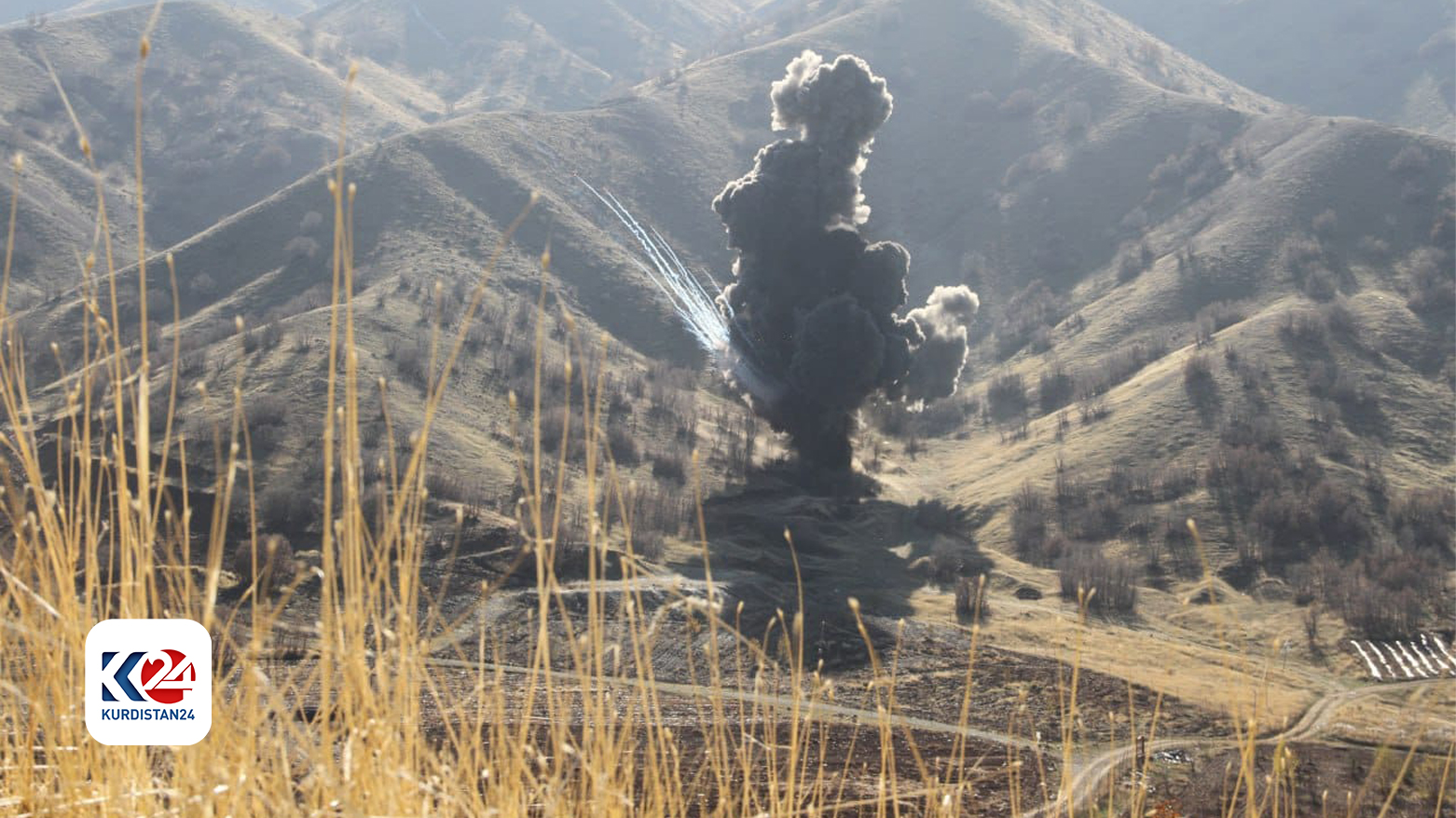Kurdish demining agency destroys 550+ mines in Penjwen

ERBIL (Kurdistan 24) – The Iraqi Kurdistan Mine Action Agency (IKMAA) announced on Tuesday that they had destroyed more than 564 mines in the Penjwen district of Sulaimani province.
Jabar Mustafa Rasul, the director of the agency, revealed in a press conference that Penjwen district in the Kurdistan Region is considered to be one of the most contaminated areas with landmines due to the 1980s Iran-Iraq War.
“The area contaminated with landmines in Penjwen is large and demining teams continue their work despite the difficulty in transportation [to the mountains] and the region's financial crisis,” Rasoul said.
More than 206.3 million square meters of land in Sulaimani province remain contaminated with landmines, while 100.9 square meters in total has been cleared of the explosives.
Reportedly, approximately 5,225 mine-related deaths have been recorded in the area since the Iran-Iraq War.
The Kurdish region has occasionally received international help in its demining initiative, specifically from the Slovenia-based Enhancing Human Security (ITF) non-profit organization, although Kurdish leadership has frequently stressed the need for more help from global partners.
Aside from the Penjwen district, there are also landmines in Mergasor district. The alleged culprit has disputed accountability, although reportedly both the Kurdistan Workers’ Party (PKK) and the Turkish Armed Forces have been exhibited mining areas near the district’s Turkish border.
With landmines populating 650 million square meters of land, Iraq has the most landmines of any country in the world, according to the international Landmine Monitor. Of the approximately 650 million square meters containing the explosives in the country, nearly half (314 million) are in the Kurdistan Region.
